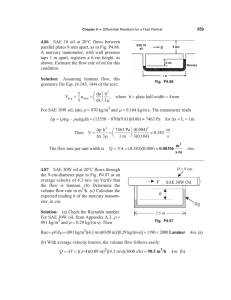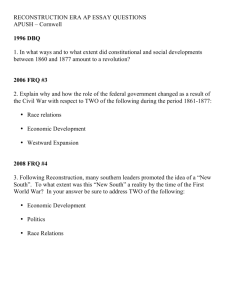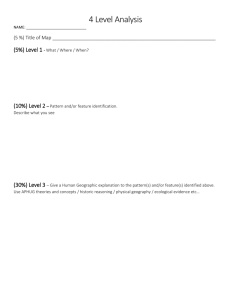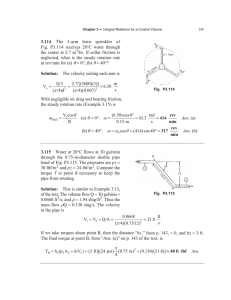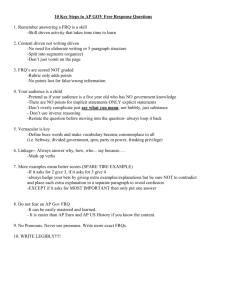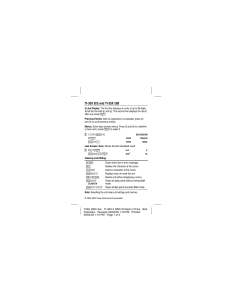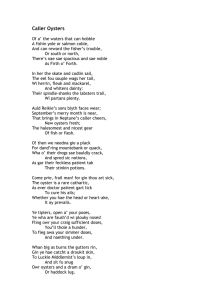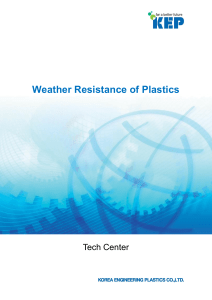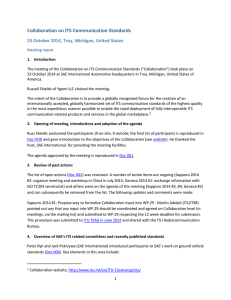H
advertisement
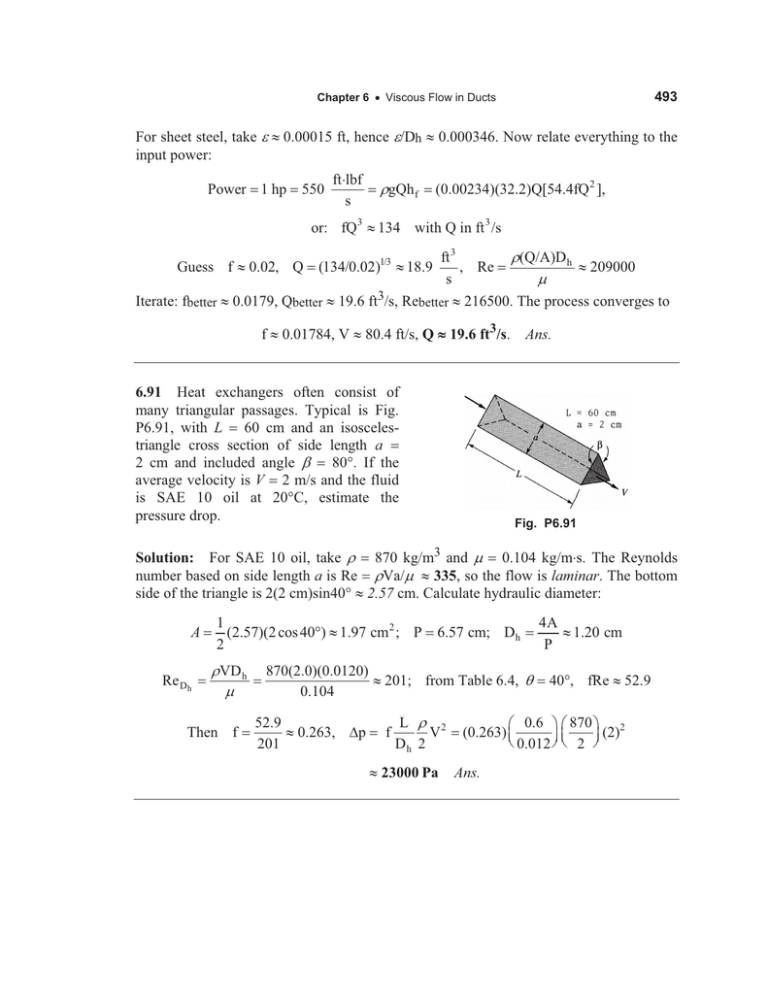
493 Chapter 6 x Viscous Flow in Ducts For sheet steel, take H|0.00015 ft, hence H/Dh | 0.000346. Now relate everything to the input power: Power 1 hp 550 ftlbf s UgQh f (0.00234)(32.2)Q[54.4fQ 2 ], or: fQ3 | 134 with Q in ft 3 /s Guess f | 0.02, Q 1/3 (134/0.02) ft 3 , Re | 18.9 s U(Q/A)D h | 209000 P Iterate: fbetter | 0.0179, Qbetter | 19.6 ft3/s, Rebetter | 216500. The process converges to f | 0.01784, V | 80.4 ft/s, Q | 19.6 ft3/s. 6.91 Heat exchangers often consist of many triangular passages. Typical is Fig. P6.91, with L 60 cm and an isoscelestriangle cross section of side length a 2 cm and included angle E 80q. If the average velocity is V 2 m/s and the fluid is SAE 10 oil at 20qC, estimate the pressure drop. Ans. Fig. P6.91 Solution: For SAE 10 oil, take U 870 kg/m3 and P 0.104 kg/ms. The Reynolds number based on side length a is Re UVa/P | 335, so the flow is laminar. The bottom side of the triangle is 2(2 cm)sin40q | 2.57 cm. Calculate hydraulic diameter: A Re Dh 1 (2.57)(2 cos 40q) | 1.97 cm2 ; P 2 UVD h P Then f 6.57 cm; Dh 870(2.0)(0.0120) | 201; from Table 6.4, T 0.104 52.9 | 0.263, 'p 201 f L U 2 V Dh 2 | 23000 Pa 4A | 1.20 cm P 40q, fRe | 52.9 § 0.6 · § 870 · 2 (0.263) ¨ (2) © 0.012 ¸¹ ¨© 2 ¸¹ Ans.
